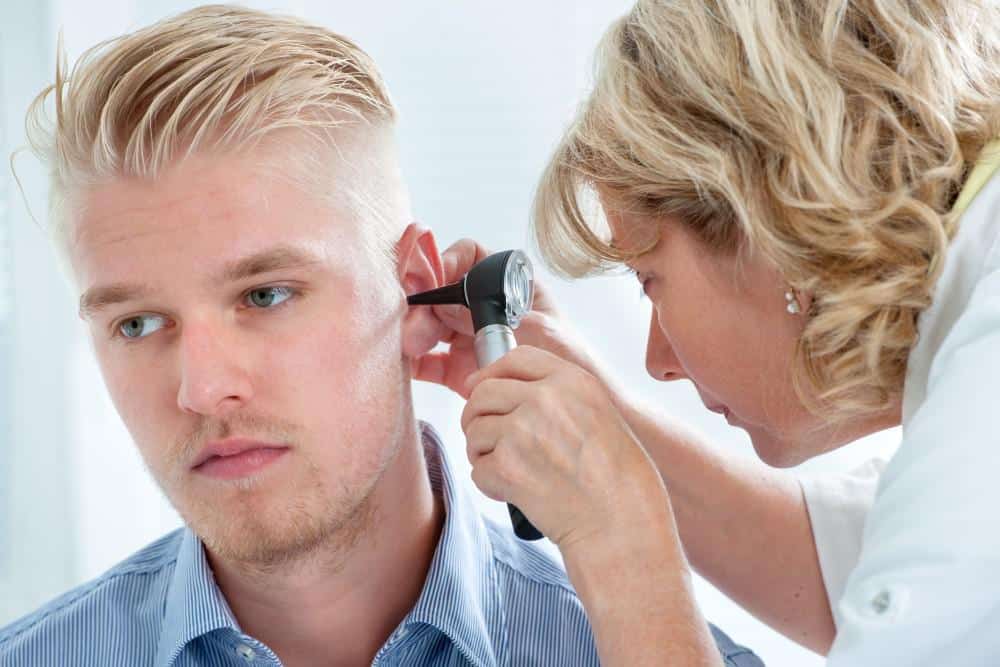Rediscover the Sound of Silence: Treat Your Tinnitus

Home > Blog > Rediscover the Sound of Silence: Treat Your Tinnitus
Rediscover the Sound of Silence: Treat Your Tinnitus
Tinnitus is a common (but frustrating) problem many people struggle with; however, most are unaware that there are treatment options available to reduce the ringing and bring back the sweet sound of silence. Dr. Franklyn Gergits and his team at Sinus & Allergy Wellness Center are experts on all things ears, nose, and throat and can help you find peace and comfort in your hearing again.
Understanding tinnitus
Tinnitus occurs when you hear or have the sensation of sound when no external sound is present. What most don’t understand about their tinnitus is that it is a symptom and not a condition itself. Many conditions can cause tinnitus, like age-related hearing loss and exposure to loud noises. You may also have a medical condition causing your tinnitus, including:
- Injury to the head or neck
- Dysfunction in the eustachian tube
- Spams in the muscles of your inner ear
- Meniere’s disease — a disease in the middle ear that can cause dizziness and hearing loss
- Temporomandibular joint (TMJ) disorders
- Acoustic neuroma
- Some blood vessel disorders
Regardless of the cause of your tinnitus, your symptoms will most likely be the hallmark ringing, buzzing, and humming sound in one or both ears. In fact, the key to receiving the best care for your tinnitus is to identify exactly what type of sound you are hearing.
Clicking
If you’re experiencing a clicking noise, you may have issues with muscle contractions.
Rushing or humming
Rushing and/or humming sounds are typically signs of a vascular issue and may often be heard when changing positions, like going from a seated to a standing position.
Heartbeat
Sometimes, the noise in your ears could sound like your own heartbeat. This could mean you have a blockage in your ear canal, or it could mean you have blood vessel problems like high blood pressure.
Low-pitched ringing
A low-pitched ringing is usually a sign of Menier’s disease.
High-pitched ringing
On the other hand, high-pitched ringing is typically indicative of damage or injury to the ear most likely from a loud noise. This ringing may subside but could be permanent.
Besides the frustrating, constant sound in your ears, tinnitus can affect other areas of your life, including:
- Increased fatigue and stress
- Trouble sleeping and/or concentrating
- Issues with memory loss
- Depression, anxiety, and/or irritability
Most often, tinnitus is a common, simply treated symptom; however, it can also be a sign of other health complications. Warning signs for a more serious cause of tinnitus can be:
- Developing tinnitus immediately after a respiratory infection without improvement within a week
- Having tinnitus that interferes with your daily life and activities
- Suddenly developing tinnitus without cause
- Experiencing hearing loss or dizziness
It is important that you make an appointment with Dr. Gergits and our team as soon as possible if you experience any of these symptoms.
Treating your tinnitus
At the very least, tinnitus is annoying. At its worst, it can be totally debilitating. No matter how severe your tinnitus is, there are many ways to treat it.
A few treatment options for at-home-care include:
- Knowing what triggers your tinnitus and avoiding it
- Quitting smoking
- Adding soft, ambient noise to mask the irritating ringing
- Setting aside time to relax every day
- Making sleep and exercise a priority
- Protect your hearing
All of these are excellent ways to treat your tinnitus at home, but sometimes, the best way to live with tinnitus is to simply try to ignore it.
If your tinnitus requires medical attention, Dr. Gergits will conduct a full examination of your ear and the sounds you are hearing. After his examination and evaluation of your situation, he may suggest the following treatments:
Medication
Medication can address the underlying medical conditions causing your tinnitus or offer relief in the form of antidepressants.
Hearing aids or masking devices
Dr. Gergits may prescribe a hearing aid especially if you have experienced hearing loss. You may also benefit from a masking device, which is similar to a hearing aid. Instead of assisting in hearing loss, masking devices deliver a soothing sound to drown out the unwanted sound of tinnitus.
Other treatments include therapies, like Tinnitus Retraining Therapy and cognitive therapy, dental treatment, cochlear implants, and natural/herbal remedies
You can also take steps to prevent tinnitus by avoiding loud noises and protect your hearing at all times.
If you’re fed up with the noise in your ear and are desperate for relief, look no further than Dr. Gergits and the team at Sinus & Allergy Wellness. Their expertise and dedication to your care will bring you comfort, normalcy, and peace once again. Call today or schedule an appointment online.
Disclaimer:
The information provided in this article is for informational and educational purposes only and does not constitute medical advice. It is not intended to diagnose, treat, cure, or prevent any disease or medical condition. Always seek the guidance of your physician or other qualified healthcare provider with any questions you may have regarding a medical condition or treatment.
Results may vary: Treatment outcomes and health experiences may differ based on individual medical history, condition severity, and response to care.
Emergency Notice: If you are experiencing a medical emergency, call 911 or seek immediate medical attention.



